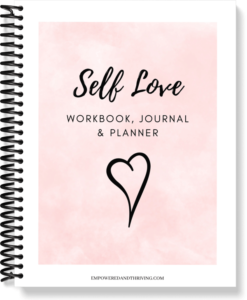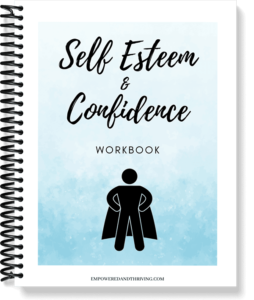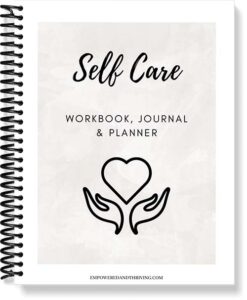Some fear and anxiety are normal and a matter of fact, beneficial. Fear keeps us safe, and some anxiety keeps us focused and prepared. Too much of it, however, can wreak havoc in our lives. If you do not feel like you have control over your anxious thoughts and fear consumes you, then these strategies will help you overcome fear and anxiety.
What is Fear and How It Affects Us
Fear is one of the most powerful emotions that we can experience. It is deep-rooted in our genes and is a primal instinct that we share with all of the animal kingdom. Why? Because fear’s purpose is to keep us alive. Even though our dangers are far less today than they were in our caveman days, it still serves a purpose.
When we perceive danger:
- Your heart races.
- You become on high alert.
- Your body releases glucose in case your muscles need the extra energy to fight or run.
- Your muscles become tight.
- Hormones flood the body to help you stay focused and ready to handle the threat.
You can see how instantly our bodies can become ready to deal with fear and danger in seconds. The emotion of fear and its effects on the body are powerful but are not sustainable. Our response to fear is only supposed to be temporary. If we stay in a constant state of fear, you can see how our body’s response can begin to work against us instead of for us. We cannot, and are not, built to be on high alert at all times, to constantly release fight or flight hormones into our bloodstream, or sustain an elevated heart rate. Yet, in all of nature’s wonder and intelligence, it did not install a built-in fear-off switch for human beings, and many of us walk around with that switch turned to the on position almost every waking moment.
Many of us live in a constant state of fear, real or not, and it creates chaos in our bodies, our minds, and our lives. So, it’s important to learn to overcome the fear that does not serve a purpose.
What Is Anxiety?
Anxiety is a type of fear. As such, it causes the same physical and mental reaction that fear does. However, anxiety is a perceived threat in the future and does not reflect what is happening in the current moment. Anxiety is also persistent. Do you constantly worry about things that haven’t even happened? This is not only draining but dangerous to your body and will prevent you from truly living a happy and successful life. How can you enjoy today and truly feel happy in the moment if you have this nagging feeling that something bad is coming? You can’t.
How to Overcome Fear and Anxiety
As you have learned, fear has its purpose but can be dangerous if it is persistent and only perceived. Here are some powerful strategies to help you overcome fear and anxiety and flip the switch off when needed.
“F.E.A.R – False Evidence Appearing Real.”
1 – Learn to Live in The Moment

When anxiety strikes, you are fixated on something that hasn’t happened yet. Your mind tends to take you to some future point in the midst of a worst-case scenario. You can break this worry habit and overcome fear and anxiety by bringing yourself back to the present moment. Do something that will bring your thoughts to the right here and right now. A quick way to do this is to use your senses to examine the world around you. What sounds do you hear? What smells do you smell? Here are a few other things you can do as well to live in the moment:
- Go for a walk.
- Play with your kids.
- Meditate.
- Immerse yourself in a hobby.
Bring yourself out of the future and live more in the present moment.
2 – Visualize A Better Outcome to Overcome Fear and Anxiety

While you work to live more in the moment, you will no doubt still have visions of a future filled with turmoil. Start proactively replacing these worst-case scenarios with a more positive outcome. Close your eyes and visualize things working out for the best. See yourself happy and content with the outcome. Visualize a positive outcome as often as you can to help you overcome fear and anxiety.
3 – Face Your Fears Often

The more you face your fears, the less they will seem scary, and the less anxiety you will have about them. Take the fear of rejection or fear of failure, for instance. The more you put yourself out there and the more you fail, the easier things will get. You can focus your attention on how to improve and how to move on rather than being afraid. If you are afraid of speaking in public, take every opportunity to speak in front of a group. After a time, it will become easier, and your anxiety will be less likely to overwhelm you. Whatever your fear, face it often.
4 – Learn to Calm Your Nerves

There are many physical and mental effects caused by anxiety and fear. Your heart rate increases, your body’s fight or flight mechanisms begin to fire, etc. The next time these things happen, use techniques to calm your nerves and bring your body back to a calm state. A great way to do this is by using the Equal Breathing Technique. Breathe in for the same amount of time that you breathe out. For example, breathe in for 4 seconds and out for 4 seconds. Doing this over and over will bring your elevated state of fear and anxiety to a halt.
5 – Overcome Fear and Anxiety by Questioning and Challenging

Make it a habit to question your anxiety and fear. Ask yourself, “how likely is this going to happen?” “Is my fear grounded in reality?” When you take the time to question, especially after you have calmed your nerves and can think more clearly, you start to see your fear from another perspective. Once you shift your perspective, your fear will loosen its hold on you.
6 – Limit Your Exposure to Negativity

Negativity affects our mood, our happiness, and life in general. When we constantly bombard ourselves with things that create a negative emotional response within us, it keeps our fear and anxiety levels high. Avoid doing this to yourself by proactively limiting your exposure to negativity. For example, if listening to the news all day puts your anxiety into overdrive, start limiting your exposure. Get caught up on current events in the morning and then avoid the news the rest of the day. Another way to limit negativity is to restrict the time you spend on social media each day. Stay aware of the types of toxic information you are surrounded with and avoid them when possible.
7 – Sleep More

Overcome anxiety and fear by getting more sleep at night. This does two things; first, it gives your mind and body a chance to recuperate from being in a heightened state that fear and anxiety create. Second, it limits the time you have during the night to worry. Keeping your body in a heightened state for long periods of time without adequate rest will cause all kinds of issues. These include:
- Muscle fatigue.
- Headaches.
- Trouble concentrating.
- Irritability.
This is only scratching the surface. Just remember that the more tired you are, the more prone you are to higher levels of anxiety throughout the day.
8 – Address Your Concerns Head on To Overcome Fear and Anxiety

If something in your life causes anxiety and fear and you have control over it, then address it head-on. Are finances stressing you out? Then work on finding solutions to alleviate the problem. If you have anxiety about your job, then explore other career alternatives. Perhaps you should start saying “No” more to people who are the source of your anxiety.
You may face more temporary fear and anxiety of the unknown, but it is necessary to rid yourself of the persistent fear and anxiety you’ve been dealing with. Would you rather have some anxiety over changing your career and finding a new job over the next few months or facing the same anxiety day in and day out for the rest of your working life at your current job? Make some hard choices, and face your concerns head-on.
9 – Journal

Journaling is an excellent way to overcome anxiety and fear. Studies have shown that writing things down is a powerful way to express your thoughts and feelings. Journaling will help you work through worry and fear and also help change your perspective. Write down your fears and how they affect you. Use your journal to challenge your thoughts. You can even write down your desired outcome. Pick yourself up a journal today and start writing.
10 – Seek Professional Help

Do not be afraid to seek professional help. Sometimes we need some assistance overcoming our fear and anxiety. Be open to getting help, such as a therapist, if you cannot shake your anxious thoughts. If you do not want to see a therapist, see your normal doctor. There may be something else going on that only they can diagnose. The important thing is that you take steps to improve.
We all have anxiety and fear at times. The key is to control them instead of them controlling you. If life seems to be too much, then use these powerful strategies to overcome fear and anxiety. Learn to live in the moment, visualize a better outcome, face your fears often, and learn to calm your nerves. You can also question and challenge, limit your exposure to negativity, sleep more, address your concerns head-on, journal, and seek professional help if necessary.
How would your life change if your anxiety and fear no longer have the power they have over you? Let me know in the comments below.









Leave A Reply